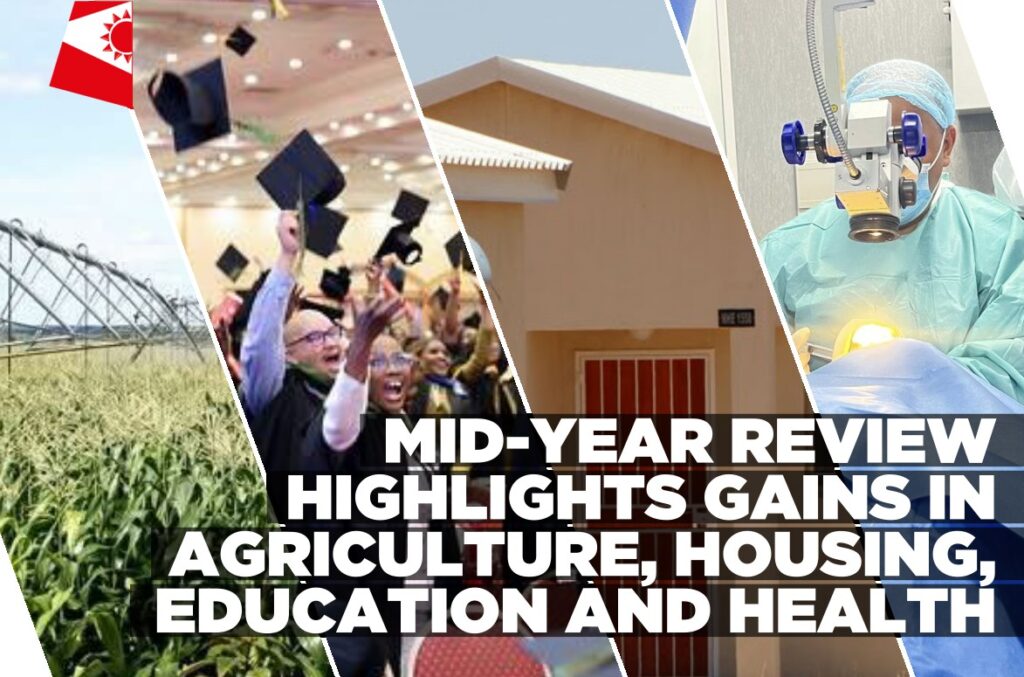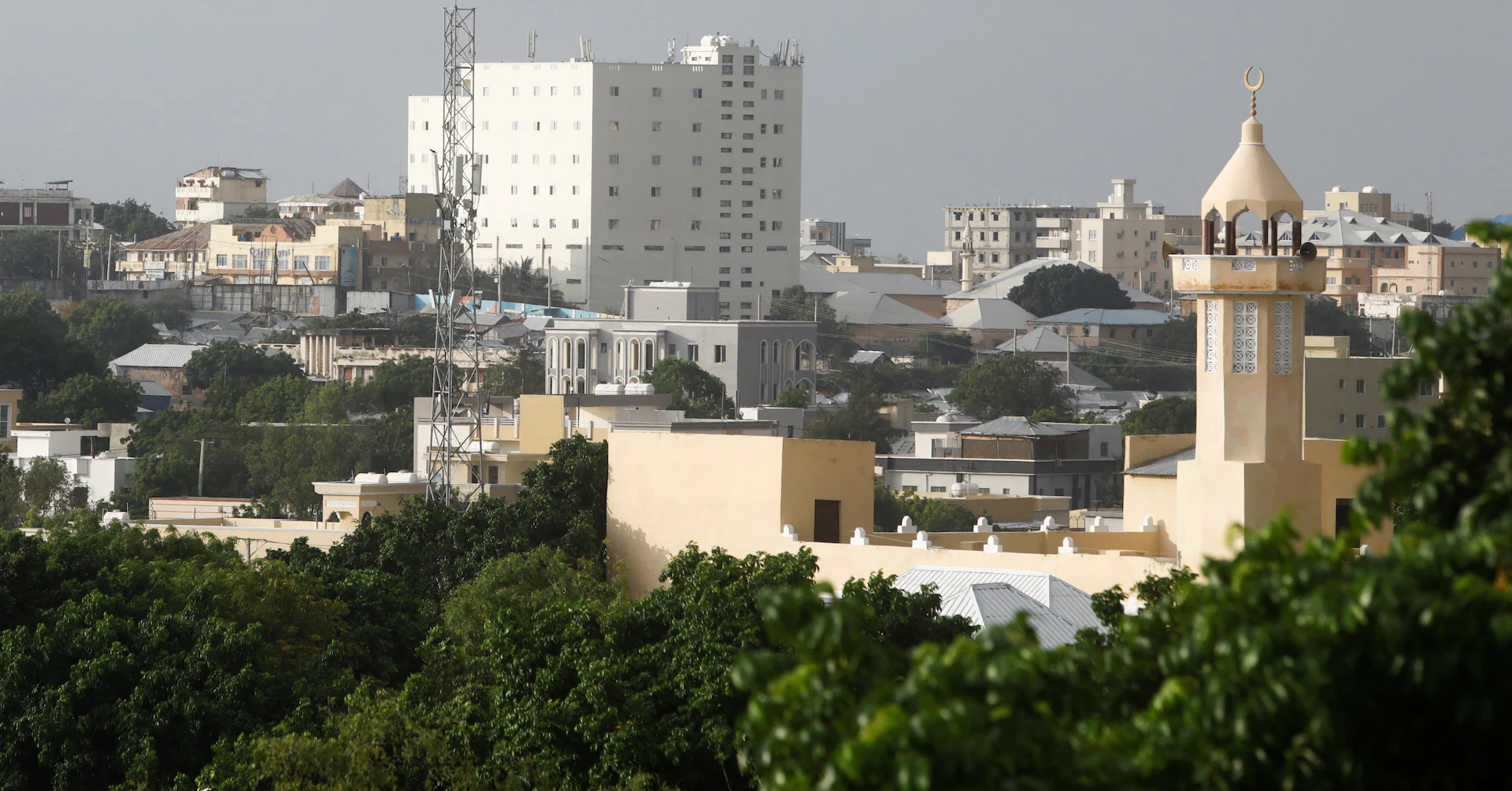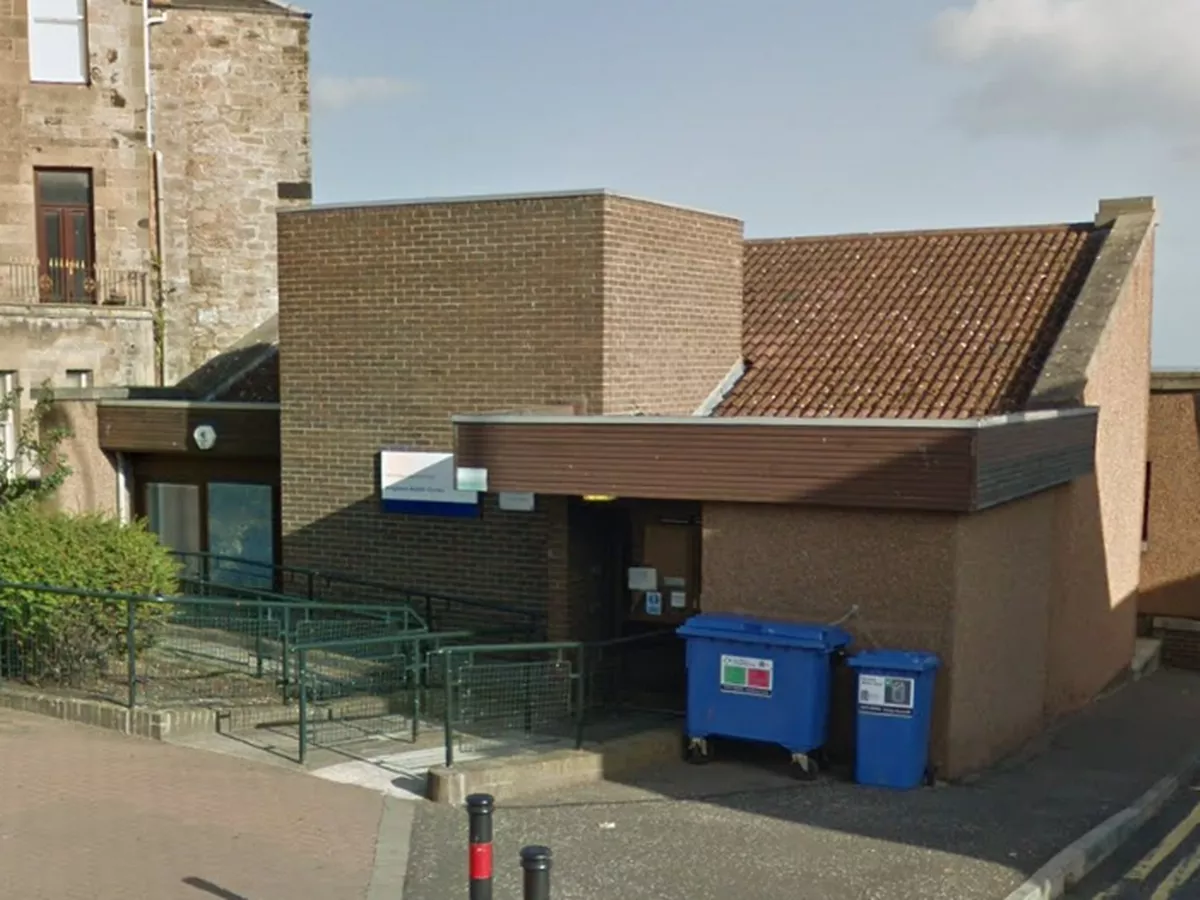Copyright web

Staff Reporter FINANCE Minister Ericah Shafudah presented the 2025/26 Mid-Year Budget Review Statement, outlining notable progress in the implementation of government’s priority projects across key sectors, including agriculture, housing, health, education, and youth development. Shafudah said, in the agricultural sector, President Dr. Netumbo Nandi-Ndaitwah reaffirmed the importance of achieving national food self-sufficiency through state-managed green schemes. The Ministry of Agriculture, Water and Land Reform has intensified efforts to increase crop production, targeting over 80 percent land utilisation during the 2025 summer cropping season. This drive forms part of the broader strategy to enhance food security, improve household nutrition, and strengthen resilience against climate shocks under the National Development Plan Six (NDP6). Significant harvests were recorded at several green schemes. At Etunda in the Omusati Region, the scheme produced 3,600 tonnes of maize, 480 tonnes of wheat, 600 tonnes of potatoes and 660 tonnes of onions. The Sikondo Green Scheme in the Kavango West Region achieved a wheat yield of six tonnes per hectare from 120 hectares, and plans to diversify production across 300 hectares during the current season. At Ndonga Linena in the Kavango East Region, 4,320 tonnes of maize and 2,520 tonnes of wheat were harvested, Shafudah added. To safeguard livestock health and ensure a stable supply of animal protein, the Ministry also implemented an extensive vaccination campaign. In addition, the installation of 63 new boreholes across various communal areas has been completed, improving access to water in regions such as Khomas, Oshikoto, Omusati, Ohangwena, Hardap, Omaheke, //Kharas, Kunene, Erongo, Otjozondjupa, Zambezi, Kavango West and Kavango East. Construction of earth dams is ongoing in several regions, with completion expected by the end of the current fiscal year. Minister Shafudah added that in housing and land development, the government reaffirmed its commitment to formalising informal settlements as a basic human right, focusing on dignity, decency and access to essential services such as water, sanitation and affordable housing. During the review period, nine new townships were approved and gazetted, including Brukharos in Keetmanshoop, Mariental Extension 5, Plaatjiesheuwel Extensions 4 to 8 in Koes, Oniipa and Outapi Extension 20. The Shack Dwellers Federation of Namibia constructed 2,160 houses across all 14 regions, with the highest numbers recorded in Erongo, Oshikoto and Kunene. A similar number of households also received proper sanitation during the same period. Progress was also made in the health sector. At Onandjokwe Referral Hospital, construction of the maternity and paediatric wards is 85 percent complete, though delays have been experienced due to the late delivery of air-conditioning materials, the Minister added. Renovation and upgrade work at Oshakati Intermediate Hospital, including the construction of the ICU and ophthalmology wards, has been completed. At Katutura Intermediate Hospital, renovation works and the installation of an oxygen generation system are ongoing. The 500-bed Khomas District Hospital in Windhoek’s Havana constituency is progressing steadily, with Phase I—covering bulk access roads, water and electrical services—currently at 40 percent completion and expected to be finalised by December 2025. The education sector also recorded progress, with the Keetmanshoop Vocational Training Centre now 99 percent complete and scheduled to open its doors in January 2026 for the first academic intake. Meanwhile, youth empowerment efforts advanced with the launch of the National Youth Development Fund in Gobabis, Omaheke Region. The programme received 11,475 applications from all 14 regions, and 42 projects—three from each region—valued at N$14.8 million were approved and funded. The initiative is being implemented through the Development Bank of Namibia, Agribank and the Environmental Investment Fund, which will continue to assess remaining applications. Looking ahead, Shafudah outlined the fiscal policy priorities for the 2026/27 to 2028/29 Medium-Term Expenditure Framework (MTEF). The framework is built around three main pillars: stimulating economic growth through state-owned enterprises and job creation, implementing a coordinated tax reform under the Medium-Term Revenue Strategy, and maintaining a positive primary balance to manage national debt. Finance Minister Shafudah added that government plans to introduce an economic diversification strategy in February 2026 to promote non-resource sector growth, adopt a more diversified financing approach using guarantees instead of bonds, and enhance fiscal planning through the Meridian Debt Management Platform.



